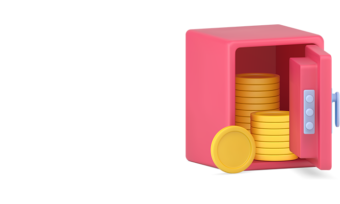Find the everyday account for your day-to-day needs. Easily compare accounts from 11 providers using our free comparison table.

Banking & Insurance - July 15th
Looking for the best-rated everyday and savings bank accounts? Check out the recipients of Canstar's latest 5-Star Ratings for the best bank accounts in New Zealand. What are Canstar's Outstanding Savings and Transaction Accounts Awards? Canstar's…
– Read more
Banking & Insurance - January 23rd
Which donations can I claim a tax refund for? In New Zealand, you can claim a tax credit for donations made to eligible charities and some schools. You can claim a tax refund for donations of…
– Read more
Budgeting & Saving Money - December 20th
What is Rewardia.co.nz? Rewardia is an online GPT (get paid to) site which offers users the chance to earn points that can be exchanged for gift cards or cash. How to earn points with Rewardia.co.nz Users…
– Read moreAn everyday account is a bank account used to manage your everyday finances. You can deposit your income, and withdraw money in a variety of ways: debit card, EFTPOS, ATMs, direct debit, BPAY, digital pay and branch access.
Individuals can compare everyday accounts on our website. Businesses can compare business bank accounts here.
Many banking apps and digital wallets also allow you to make contactless payments using your mobile phone. Contactless mobile phone payment systems in New Zealand include Apple Pay, Google Wallet, Google Pay and Samsung Pay.
Here are a few things to consider when comparing everyday accounts:
Most everyday accounts offered by major banks are free of fees. However, some do have associated costs, these can include:
Surcharges are another matter entirely. Surcharges are fees charged by the business you are purchasing the good or service from, to cover the extra cost involved in processing a transaction by debit card rather than by cash.
If you use payWave, you should be aware that there may be a surcharge every time you make a payment. New Zealand retailers are charged a fee for every contactless payment they process, and this cost is sometimes passed on to the consumer, through surcharges.
Some everyday accounts do offer interest on positive balances. However these rates do tend to be very low. So it pays to keep any lump sums in savings accounts that offer higher rates of interest. To compare savings accounts, click here.
Please note that these are a general explanation of the meaning of terms used in relation to everyday accounts. Your bank or financial institution may use different terms, and you should read your product disclosure statement (PDS) carefully to understand everything that may apply to your account. You cannot rely on these terms in relation to any transaction account you may open.
Account-keeping or administration fee: An ongoing fee charged to cover the lender’s administration costs for creating and maintaining the account. Usually charged monthly on everyday accounts.
ATM (Automatic Teller Machine): A machine found in public places, which allows you to withdraw funds from your account, usually 24/7.
Balance: The amount of money available in your everyday account.
Banking Ombudsman: If you have a dispute with your bank and haven’t been able to resolve it through the bank’s internal complaints resolution process, you can contact the Banking Ombudsman of New Zealand. It is a free and independent service that helps people resolve disputes with their financial institution.
Basis points: A unit of measurement used to describe the percentage change in interest rates or the value of a financial product. One basis point is 0.01%.
Branch: The physical building where your bank or financial institution exists. Branches are usually only open during normal working hours.
Cash: Money in the physical form of notes and coins.
Cheque account or checking account: A everyday account that allows you to make payments with your own money by writing cheques. If you do not have enough money in your account when the recipient cashes your cheque into their own account, the cheque will “bounce”, meaning it is not be paid and you may be charged penalty fees.
Consumer: Someone who buys and uses products or services.
Credit card: A card that gives the account holder access to a line of credit. You can spend up to a specified credit limit, but the money must be repaid, otherwise you start paying interest on the balance of the card (whatever you have spent).
Debit: Withdrawal transaction.
Debit card: A card that is linked to a everyday account and allows the cardholder to make payment transactions and ATM withdrawals. Also known as a bank card or cheque card.
Deposit: Money that you put into an account with a financial institution. (A “deposit” can also refer to a down-payment on an item you are purchasing. It is paid as a promise to purchase, with the balance of the purchase price remaining to be paid.)
Direct debit: When a transaction is automatically removed from an account and received into a different person’s account. For example, your salary or wages are automatically removed from your employer’s bank and deposited into your bank account.
EFTPOS (Electronic Funds Transfer at Point of Sale): A payment system that allows you to use your debit card to make payments for goods or services, or withdraw cash. An EFTPOS machine is used in-store to process debit and credit payments.
Electronic banking: A broad term used to refer to the banking system encompassing online banking, telephone banking, ATMs, mobile apps and EFTPOS. You can use electronic banking to make withdrawals, payments, deposits or transfers.
GST (Goods and Services Tax): The New Zealand tax levy on payments for goods and services.
Income: Money you earn, including wages, salary, interest, government benefits, and rental income.
Inflation: The percentage by which the prices of goods and services rise each year.
Interest: Money paid by a bank or other financial institution for the use of your money while deposited with them. Interest is earned over time by calculating a percentage of the balance of your account.
Internet banking: Online banking. Banking services performed through an internet browser on a computer, or via apps on smartphones or tablet devices connected to the internet.
Introductory rate: A promotional, introductory bonus interest rate applied to a new account for a set time period. At the end of the set period, rates revert to normal base rates.
Junior everyday account: Everyday accounts for children and youth. A parent or guardian operates the account in the child’s name until they reach legal age, but the child also has access to their account.
On-call: “On-call” or “at call” everyday or savings accounts allow you to withdraw your money immediately, with no waiting period.
Pay anyone: A payment system that allows you to transfer money to any individual or organisation using online or phone banking, as long as you have their account name and number.
Reserve Bank of New Zealand (RBNZ): The Reserve Bank is the central bank of New Zealand, and is responsible for setting the Official Cash Rate (OCR). It manages monetary policy and attempts to balance inflation and to maintain a sound and efficient financial system and economy. The RBNZ also issues our national banknotes and coins.
Savings account: Bank accounts that pay significant interest back to the account holder and cannot be used to make transactions. Savings accounts typically have higher interest rates than everyday accounts. They can be linked to everyday accounts to make savings available as funds for transactions as needed.
Transaction: The movement of money in or out, including deposits, withdrawals, and transfers between bank accounts.
Everyday account: A deposit account in which your money is available for day-to-day transactions. Provides frequent access to funds in your account for making payments through EFTPOS machines, online, ATMs and branches.
Transfer: When you give the bank instructions to move money from one account to another account, e.g. to move money from your savings account to your everyday account. This is different to a payment, when you send money from your account to somebody else’s bank account.
Withdrawal: Taking money out of your account, for example over the counter in a branch or using an ATM.